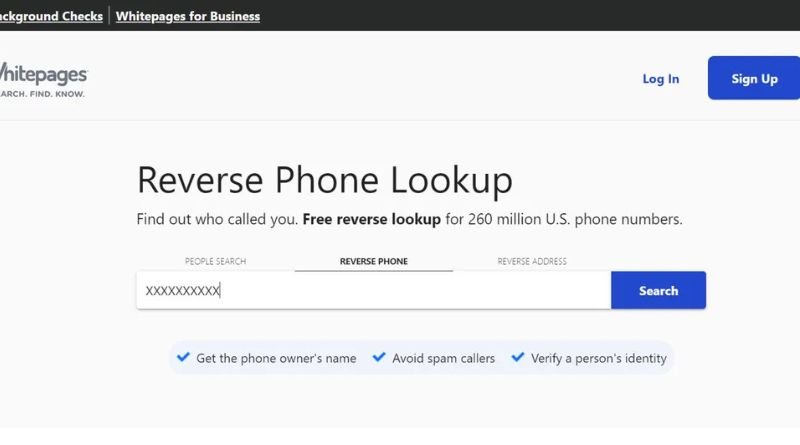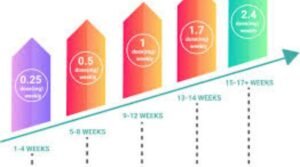In today’s digital age, the need to locate people, verify addresses, or learn more about properties has become increasingly common. With tools like reverse address lookup, you can gain insights about a location or individual with just a simple search. This powerful tool helps people verify details, connect with others, and enhance personal safety, all while posing certain privacy considerations. This article will explore how reverse address lookup works, its common uses, and essential privacy concerns, along with answering frequently asked questions on the topic.
Table of Contents
What is Reverse Address Lookup?
A reverse address lookup is a search function that allows you to input an address to find information about the property, such as the owner’s name, previous residents, property details, and even local amenities. Unlike a standard address search, where you search for an address based on a name or other detail, a reverse lookup starts with the address to reveal further information.
How Does Reverse Address Lookup Work?
Reverse address lookup tools typically access vast databases that compile public records, real estate listings, and sometimes even social media profiles to provide information related to a specific address. Here’s a step-by-step look at how it works:
- Entering the Address: The user inputs the street address they’re curious about into the search field of the lookup tool.
- Database Search: The tool then combs through its data sources, which can include public records, property listings, online profiles, and more, to match the address with relevant information.
- Result Display: The tool presents a report that may include details like the property owner’s name, property value, history of sales, nearby amenities, and even neighborhood demographic data.
Common Uses of Reverse Address Lookup
Reverse address lookup tools are widely used by individuals, businesses, and law enforcement agencies for a variety of purposes. Here’s a look at some of the primary uses:
1. Reconnecting with Friends or Family
Reverse address lookup can help people reconnect with long-lost friends or family members. For example, if someone only has an old address for a relative but no other contact information, they can use a reverse address lookup to find the current resident’s information, which may lead to a reunion.
2. Property Research for Potential Buyers or Renters
When shopping for a new home, people often use reverse address lookup tools to research properties and neighborhoods. By entering an address, prospective buyers or renters can access information about the home’s sales history, previous owners, and property details like square footage and lot size. Additionally, it provides insight into the neighborhood’s demographics, local amenities, and nearby schools, which can be valuable for families.
3. Personal Safety and Security
Reverse address lookup can help improve personal safety by providing a way to verify information about unknown individuals or addresses. For instance, if someone receives a suspicious letter or visit from an unfamiliar address, they can use a reverse address lookup to learn more about the sender. It’s also helpful in dating situations, where people can check the background of someone they’ve met online.
4. Verifying Rental Applications or Tenants
Landlords and property managers often use reverse address lookup to verify the information provided by prospective tenants. By checking previous addresses and the names associated with them, landlords can ensure the applicant’s history aligns with the information provided in their rental application, adding a layer of protection against fraud or misleading applications.
5. Tracking Down Property Owners for Business Purposes
Businesses and real estate agents sometimes use reverse address lookup to contact property owners for business opportunities. Whether it’s for sales, partnership opportunities, or real estate investment offers, this tool provides companies a way to reach out directly to property owners.
Types of Information You Can Find with Reverse Address Lookup
While the information you obtain varies depending on the tool and available data, here are some commonly accessible details:
- Property Ownership: Name of the property owner or previous owners.
- Property Details: Home value, square footage, number of bedrooms and bathrooms, lot size, and sometimes even photos of the property.
- Sale History: Dates and values of previous sales, useful for assessing property appreciation.
- Neighborhood Information: Nearby schools, parks, demographics, and community statistics.
- Contact Information: Some services may reveal phone numbers, email addresses, and other contact details associated with the owner.
Privacy Concerns with Reverse Address Lookup
While reverse address lookup offers convenience, it also raises privacy questions. The accessibility of personal information can create concerns, particularly regarding identity theft, unsolicited contact, or surveillance.
1. Personal Privacy
Many people may not be aware that their information, such as property ownership or address history, is publicly accessible. For individuals concerned with privacy, this can be unsettling, especially when reverse lookup services reveal sensitive data like contact details.
2. Potential for Misuse
Reverse address lookup tools can be used improperly, such as for stalking or harassing individuals. Despite terms of service agreements on these sites, enforcing them is challenging, and individuals with malicious intent may still exploit these tools.
3. Legislative Regulations
Countries and states often have different regulations regarding data privacy and accessibility. For example, some jurisdictions restrict the type of information made public about property owners, while others limit the resale of data through third-party lookup services.
How to Perform a Reverse Address Lookup
Using a reverse address lookup is straightforward, with a variety of free and paid options available. Here’s a general guide:
- Choose a Reliable Service: Select a reverse address lookup service known for accuracy and security, such as Whitepages, Spokeo, or BeenVerified.
- Enter the Address: Type the full address, including the street name, city, and state, into the search bar.
- View Results: The results may include owner names, property data, sales history, and possibly even contact details.
- Review Privacy Settings: Some paid services allow users to opt out of having their information publicly available, so be sure to review settings and privacy options if you’re concerned.
Reverse Address Lookup FAQs
1. Is reverse address lookup legal?
Yes, reverse address lookup is legal when used for legitimate purposes, such as reconnecting with friends, verifying rental applications, or researching property. However, using it for malicious intent or harassment is illegal and unethical.
2. What kind of information can I get from a reverse address lookup?
The information typically includes property ownership, property details (like size and value), sales history, neighborhood demographics, and sometimes contact information, depending on the service.
3. Are there free reverse address lookup services available?
Yes, some free services offer basic information, such as Whitepages and TruePeopleSearch. However, these free services usually provide limited details, and users may need to upgrade to a paid version for more comprehensive information.
4. How accurate are reverse address lookup results?
The accuracy depends on the service and the sources of its data. Generally, services pulling from public records are more accurate, while those using user-submitted data may have inconsistencies.
5. How can I protect my information from being accessed through reverse address lookup?
You can contact individual reverse lookup providers and request to opt out of having your data publicly available. Some services have privacy opt-out features on their websites, though this can vary depending on the company.
6. Are there alternatives to reverse address lookup for finding people?
Yes, people can use social media, Google search, or people-search sites specifically designed for locating individuals, like LinkedIn or Facebook. However, reverse address lookup is unique in its ability to provide property and neighborhood-specific information.
Final Thoughts on Reverse Address Lookup
Reverse address lookup is a valuable tool with a broad range of uses, from reconnecting with friends to ensuring personal safety. It simplifies property research, helps landlords verify applicants, and assists businesses in reaching property owners. However, it’s essential to approach reverse address lookup responsibly, understanding both the benefits it offers and the privacy implications it poses.
For those interested in using reverse address lookup, choosing a reputable service and understanding the available information are key steps. Equally, for individuals concerned about their data privacy, taking advantage of opt-out options can help keep personal information protected from unwanted searches. As technology advances, reverse address lookup tools will likely continue evolving, making it all the more crucial for individuals to remain informed about their options and rights.



